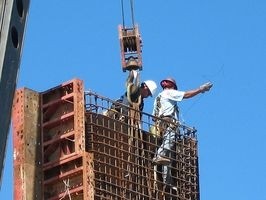Jobs For Certified Safety Professionals

Certified safety professionals are charged with preventing and minimizing workplace accidents, property damage and environmental impact. Getting a job in the field usually requires training and certifications related to safety practices.
Where to Work
Almost all businesses have some sort of safety concern that a certified safety professional can address. According to a 2000 Board of Certified Safety Professionals study, the most prevalent fields for safety work are insurance, manufacturing and production, petrochemical and consulting.
Specialization
Certified safety professionals generally specialize, creating a targeted job search. Those specializations include occupational safety, construction safety, environmental safety, loss control/loss prevention, risk management and system safety.
Entering the Field
Some safety professionals earn college degrees in fields such as occupational safety and health. Others stumble into into the field, perhaps by becoming involved in a safety committee at a business, construction or manufacturing job and steadily taking on more responsibility until garnering a full-time position.
Pay
The Board of Certified Safety Professionals' 2009 salary survey shows respondents holding a Certified Safety Professional certification earned an average salary of $99,446.94.
Prospects
The BCSP predicts strong job prospects for safety professionals thanks to increases in public expectations, government regulations and technology advancements.
Where to Work
Almost all businesses have some sort of safety concern that a certified safety professional can address. According to a 2000 Board of Certified Safety Professionals study, the most prevalent fields for safety work are insurance, manufacturing and production, petrochemical and consulting.
Specialization
Certified safety professionals generally specialize, creating a targeted job search. Those specializations include occupational safety, construction safety, environmental safety, loss control/loss prevention, risk management and system safety.
Entering the Field
Some safety professionals earn college degrees in fields such as occupational safety and health. Others stumble into into the field, perhaps by becoming involved in a safety committee at a business, construction or manufacturing job and steadily taking on more responsibility until garnering a full-time position.
Pay
The Board of Certified Safety Professionals' 2009 salary survey shows respondents holding a Certified Safety Professional certification earned an average salary of $99,446.94.
Prospects
The BCSP predicts strong job prospects for safety professionals thanks to increases in public expectations, government regulations and technology advancements.
- 0n3100a7608f4e4cb2ee4a27257bf5356f.jpg